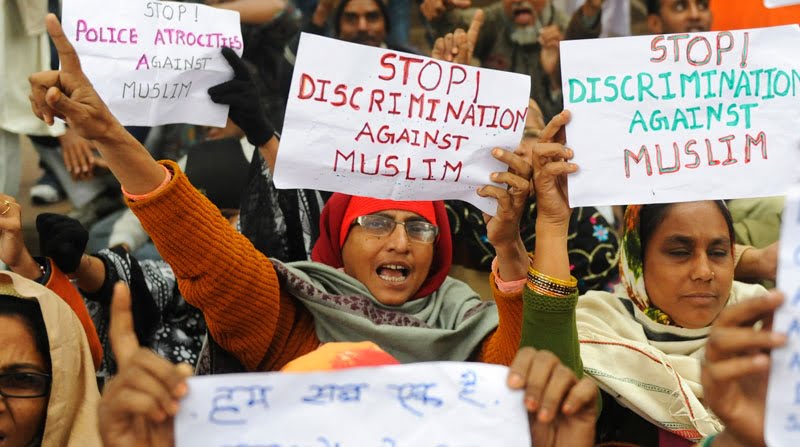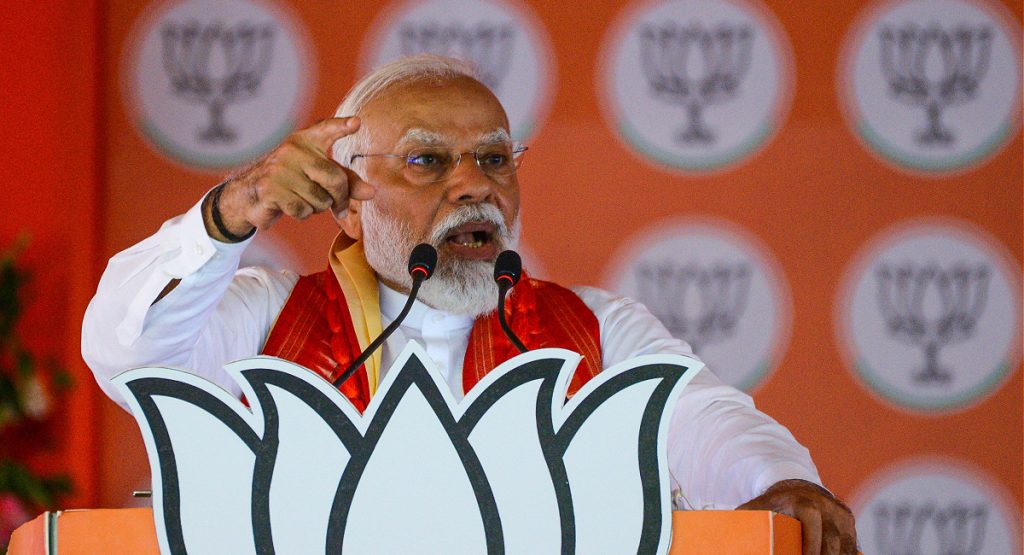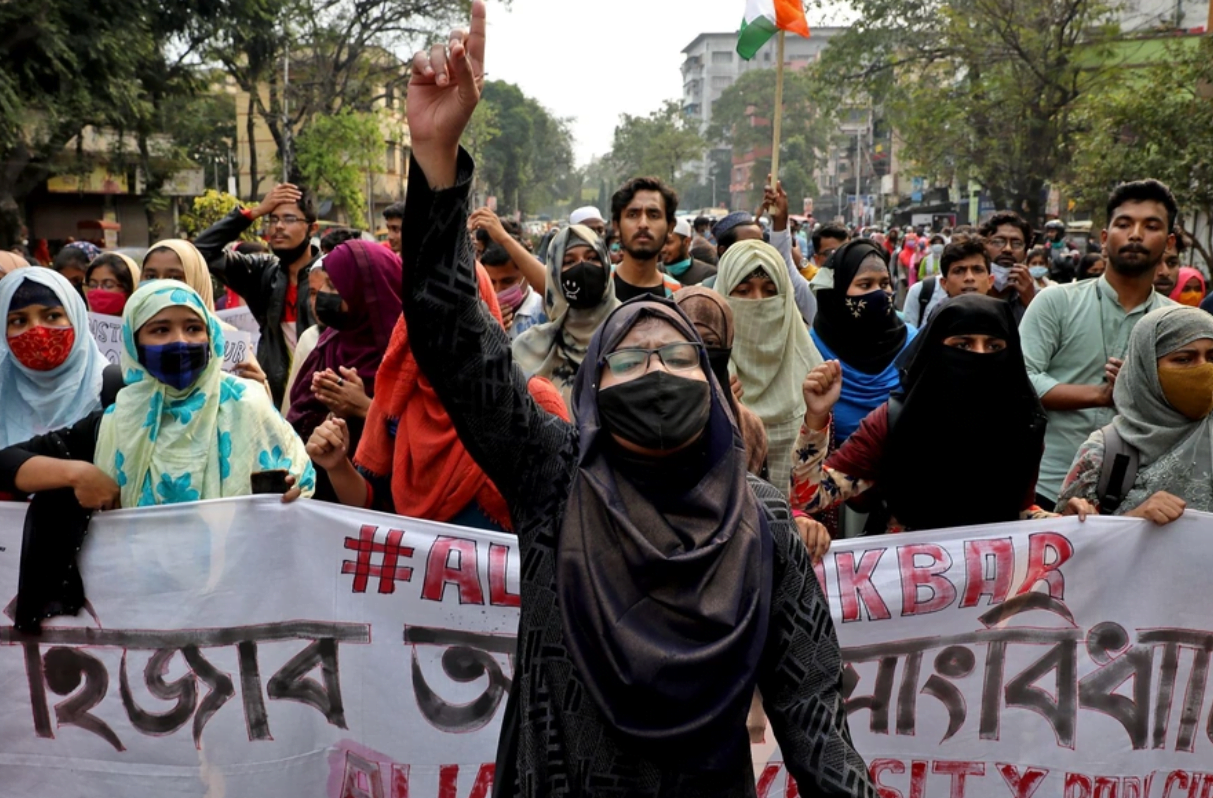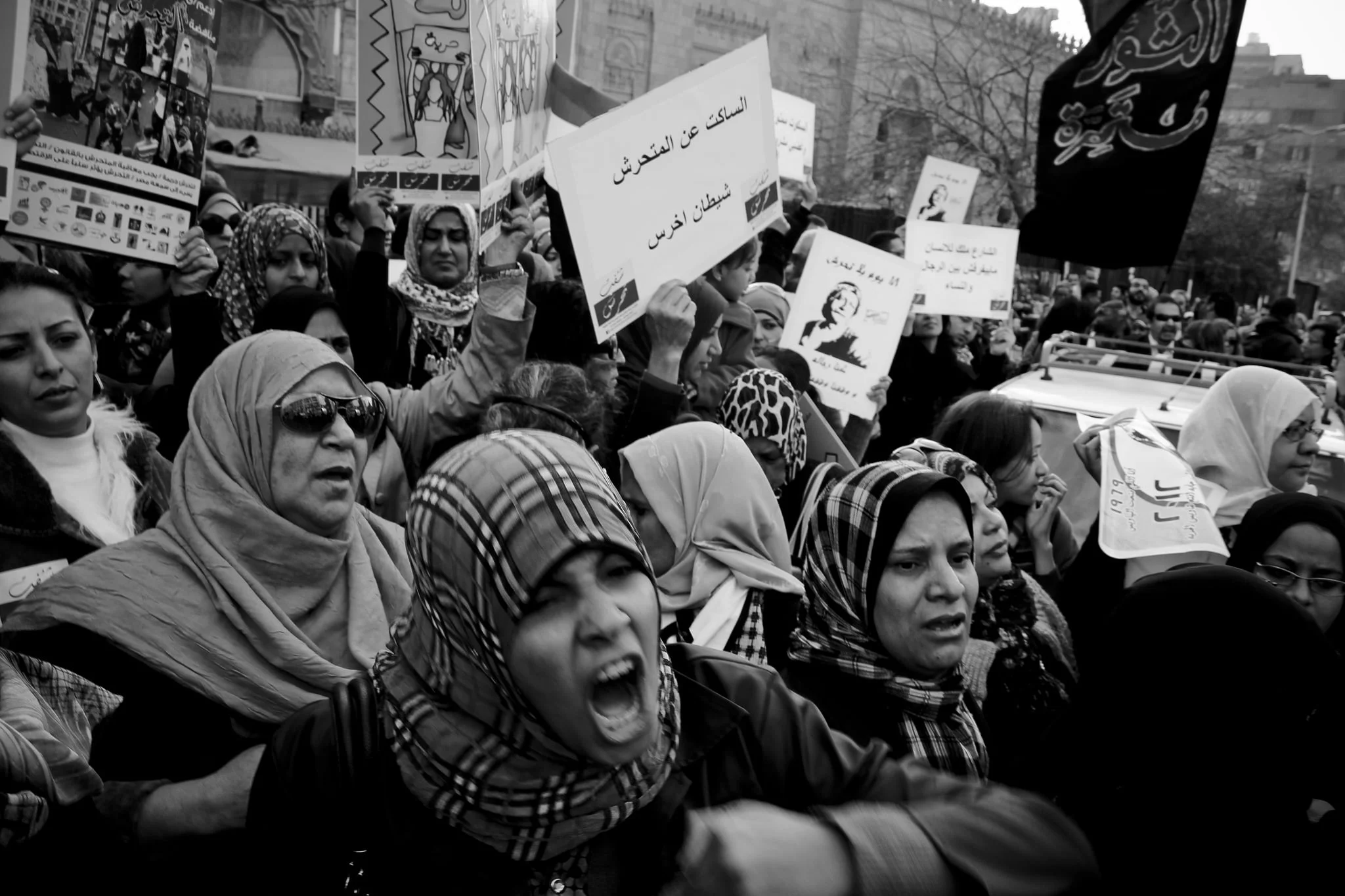On the afternoon of 21 April, Narendra Modi, addressing a gathering of hundreds in Rajasthan’s Banswara district, proclaimed, “If elected to power at the Centre, Congress would distribute people’s property, land and gold among Muslims.” This was among the 110 flagrantly Islamophobic remarks that Modi made in a total of 173 campaign speeches.
The Human Rights Watch (HRW) examined the corpus of the Prime Minister’s speeches following the implementation of the Model Code of Conduct, which bans communal appeals. As the BJP enters its third term, the continued prominence of divisive rhetoric in Indian political discourse continues to be a matter of serious concern.
Understanding Modi and minorities: a history of exclusion
Under the BJP-led NDA government, violence against the Muslim minority has risen exponentially. The hostility towards the Muslim community combined with its aggressive Hindutva ideologies has driven the government’s policy since the rise of Narendra Modi in 2014. BJP’s saffronised vision of an aspirational Hindu Rashtra is built upon the dismantling of Muslim communities and their rights.

The continual marginalisation and aspersion of minorities did not emerge out of a vacuum. Since Modi’s tenure as Chief Minister of Gujarat and the 2002 pogrom against Muslims, there has been a persistent pattern of discriminatory practices and inflammatory statements aimed at consolidating a majoritarian agenda. Pankaj Mishra, in an article titled The Gujarat massacre: New India’s Blood Rite reviewed, “More than 2,000 Muslims were murdered and tens of thousands rendered homeless in carefully planned and coordinated attacks of unprecedented savagery.”
As India witnesses almost a decade of the Modi government, the party’s extremist notions of Hindutva have been seemingly normalised. Yet, as Ram Temple was erected on the rubbles of Babri Masjid and Hindutva sentiments increasingly percolate into the secular ideals of the world’s largest democracy, it becomes impossible to ignore the significant erosion of fundamental principles of pluralism and constitutional inclusivity.
According to the recent Human Rights Watch report, numerous BJP state governments have proceeded to dismantle homes, businesses, and places of worship since the elections. The demolitions, which have occurred without proper legal procedures, are often seen as collective punishments targeting the Muslim community in response to communal conflicts or dissent. Additionally, violence against religious minorities persists, with at least 28 reported incidents across the nation, leading to the deaths of 12 Muslim men and one Christian woman.
The HRW report on Modi’s Lok Sabha election campaigns
In a report titled “Hate Speech Fueled Modi’s Election Campaign,” human rights NGO HRW accuses Modi of inciting discrimination and violence against Muslims through an active use of hate speech during election campaigns earlier this year. The report was written after conducting a comprehensive analysis of his speeches after the release of the election Code of conduct. Modi’s remarks served the dual purpose of discrediting his political opponents and eliciting fear among the Hindu community through disinformation and propaganda. “[The opposition alliance] is asking Muslims to do ‘vote jihad.’ This is new because we have so far heard about ‘love jihad’ and ‘land jihad,’ I hope you all know what the meaning of jihad is and against whom it is waged,” said Modi, adding to a series of unmistakably Islamophobic conspiracy theories.

In a rally held on May 17 at Barabanki in UP, Modi loudly blazoned, “If SP or Congress come to power, they will send Ram Lalla back to the tent and will run a bulldozer on the temple. Is this what you want to learn from Yogi ji? Take tuitions from Yogi ji where to use the bulldozer and where not to.” What has been since referenced by the leading party as “bulldozer justice,” is an obvious allusion to the model of retributive violence implemented by Uttar Pradesh Chief Minister Yogi Adityanath involving the utilisation of bulldozers to demolish the homes of those accused of offences before a case or dispute has been fairly resolved through the judicial system.
According to an Amnesty International report, “The authorities in Gujarat, Delhi, Madhya Pradesh, and Uttar Pradesh claimed that the demolition of Muslim properties was based on violations of land regulations, such as not securing the required permissions from the local municipalities, or operating businesses on government land, and other regulatory infractions. However, there are widespread similar breaches of land regulations by Hindus as well, and the measures these authorities have taken have been directed largely at Muslims and not Hindus.” Commonly dubbed “Bulldozer Baba” Yogi’s campaign has been infamous for the derogatory lexicon used about Muslims.
Modi has been accused by other parties of his “unacceptable” and “divisive” comments, both on media platforms and during speeches. During the campaign, videos posted on BJP’s social media handle have also been under examination by the EC. In a since-deleted video posted by the party on X, caricatures of Rahula Gandhi and Karnataka’s Chief Minister Siddaramaiah are displayed placing an egg marked ‘Muslim‘ next to eggs labelled ‘SC‘ and ‘ST.’ Upon hatching, Mr. Gandhi is shown providing “funds” to a chick adorned with a skullcap and an aggressive expression. As the chick grows, it increasingly dominates the nest, displacing the other chicks by throwing them out of the nest.
Furthermore, Modi was under scrutiny for referring to Muslims as “infiltrators,” “invaders,” “looters” and “those who have many children” in a communal campaign speech. Almost 20,000 citizens petitioned the Election Commission of India to address the allegations of hate speech against Modi.
However, Modi’s response to the allegation was simply a solidification of his initial statements, “I presented the truth before the nation that the Congress has hatched a deep conspiracy to snatch your property and distribute it among their special favourites.” This sentiment aligns with the configurations of Narendra Modi’s identity politics and accompanying representations of him as the redeeming saviour and watchful custodian of his Hindu electorate.
On the 30th of April, BJP posted another campaign video that depicted Muslim raiders launching a premeditated attack on mediaeval India in an attempt to corrupt her integrity and maraud her glorious wealth. Here, Modi enters as rescuer and guardian of a Hindu India. The video reiterated NDA’s sustained claims that in the hands of Congress, Hindu wealth and property will be distributed among Muslims.
Concurrently, however, there has been an ongoing denial of calculated oppression of minorities by the Prime Minister. In an interview with Newsweek Magazine, he declared, “These are usual tropes of some people who don’t bother to meet people outside their bubbles. Even India’s minorities don’t buy this narrative anymore.”
Muslim anxieties in Hindu Rashtra
Despite India’s constitutional secularism, the Hindu Nationalist BJP government continues to be the perpetrator of psychological and physical aggression against Muslims. The Muslim body becomes the site of violence, where religious extremism and political tensions intersect. Matrices of administrative power further entrench this conflict, reinforcing systemic discrimination and marginalisation. Nilanjan Mukhopadhyay, a Modi biographer, in conversation with Al Jazeera, said “Indian democracy has been badly brutalised by the BJP and Modi. This is perhaps the worst time to be a Muslim in India today, who all the time now feel they are prisoners of their identity.”
A BBC article titled “‘Invisible in our own country’: Being Muslim in Modi’s India” examines the present plight of the community. They identified a staggering amplification in anti-Muslim hate speech, of which three-quarters of incidents are concentrated in BJP-ruled states. “There is this anxiety [which we live with]. When I travel now, I have to be very aware of where I am, what I say, what I do. I feel unease even at disclosing my name to the ticket checker on the train,” Siraj Qureshi, a journalist from Delhi, told BBC.
The HRW report further reveals how the pervasive use of hate speech is positioned at the locus of NDA’s politics. It illuminates the persistent need for stronger communal harmony laws and a renewed commitment to protecting minority rights in light of growing intolerance.
About the author(s)
Gayathri S (she/her) is currently pursuing her master's in English. With a deep-rooted love for literature and writing, she hopes to streamline her interests towards a career in journalism. Alongside her studies, Gayathri has gained practical experience through internships in content writing, editing, and research. These opportunities have strengthened her commitment to impactful storytelling and managing projects aligned with broader social goals. Gayathri looks forward to merging her passion for writing with journalism, where she can explore and report on diverse narratives.





